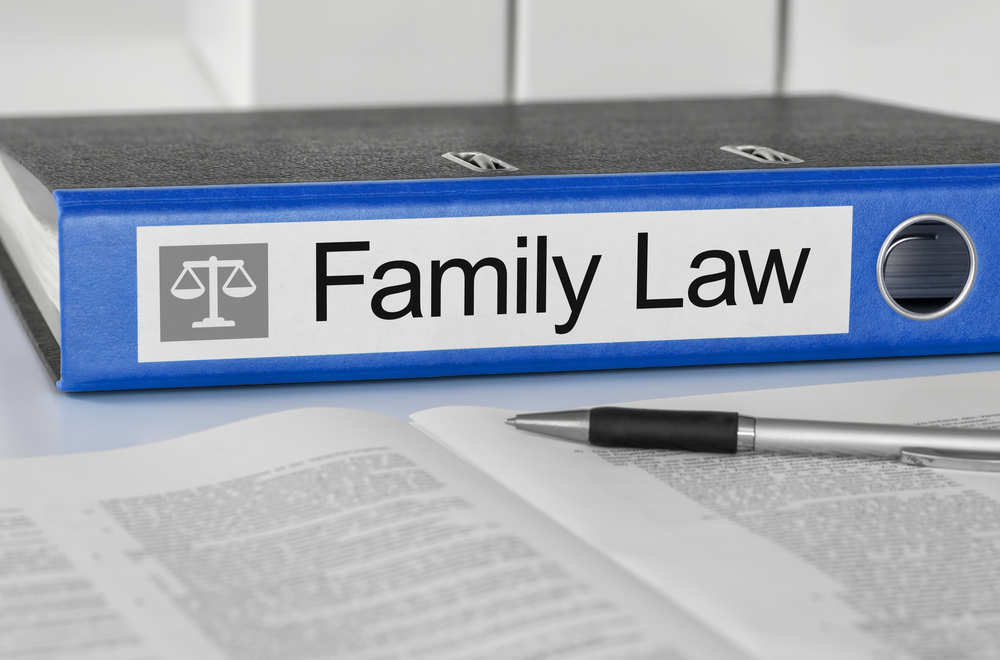Defenses to Non-Modifiable Spousal Maintenance in Arizona

The Arizona Court of Appeals in the case of Coburn v. Rhodig addressed an appeal from the Maricopa County Superior Court. The parties in the case are Mr. Rhodig (“Husband”) and Mrs. Coburn (“Wife”). The couple divorced in 2010 and Husband, by a consent decree, was ordered to pay spousal maintenance of $3000 per month for a period of 60 months, which would have been satisfied in December 2014. The decree also stated that the spousal maintenance was “non-modifiable as to duration or amount”.
Within a short time, Husband fell behind on this monthly obligation and in December 2010, the parties signed an agreement to settle the arrearage, with the final payment due December 2011. The signed agreement also included an agreement by Wife to “waive any other unpaid support owed her by Husband”. Husband complied with and satisfied all obligations due under the December 2010 agreement.
In 2014, Wife filed a petition to enforce spousal maintenance arrearages from the original consent decree. The reasons stated that she had been unable to locate Husband after signing the 2010 agreement to request payment of arrearages from the original consent decree.
She also stated that she had signed the 2010 agreement “under duress”. Husband argued that the 2010 agreement was enforceable under the Arizona Rule of Family Law Procedure 69 (A). This rule supports the equitable defenses of waiver, estoppel, or laches to Wife’s arrearages claim.

Wife argued that the original consent decree stated that the spousal maintenance was non-modifiable, so the 2010 agreement wasn’t valid and the superior court couldn’t modify the decree pursuant to A.R.S. § 25-317 (G). The parties decided that the superior court would decide the matter and the court concluded that it lacked jurisdiction to consider Husband’s request since the original consent decree was “non-modifiable”.
The court granted Wife’s petition to enforce the original consent decree and financial obligations by Husband for Wife were reissued. Husband was denied the motion for a new trial and to amend the judgment. Husband filed a notice of appeal.
The discussion of the case turns to Waldren, 217 Arizona at 175, ¶ 6, 171 P .3d at 1216. In this case, the superior court concluded it “lacked jurisdiction to modify the spousal maintenance provision in the decree” despite the fact that within two years of the decree, the husband had become disabled and his income was limited. Because A.R.S. § 25-317 (g) strictly prohibits the court from exercising jurisdiction to modify or nullify the decree, no relief was granted for Husband.
Another means to gain relief from the original consent decree comes with an “application of equitable defenses” in response to a petition to collect arrearages. In the Waldren case, the husband had not submitted this application.

In the application of equitable defenses, since it doesn’t require the court to “modify or terminate the decree”, it does not violate A.R.S. § 25-317 (G). Therefore, if a party “establishes an equitable defense by clear and compelling evidence”, the court can deny the other party’s petition to enforce.
The words, “clear and compelling evidence” very effectively protects individuals in spousal maintenance cases as well as the welfare of children in child support cases.
In conclusion, the court reversed the order granting the petition to enforce the original consent decree that Wife was requesting. The court also sent the order back to the lower court for an evidentiary hearing to explore the validity of the 2010 agreement and hear Husband’s “equitable defenses” argument. Husband was awarded his costs on appeal as the “successful party” as stated in Arizona Rule of Civil Appellate Procedure (“ARCAP”) 21.
If you have questions about equitable defenses to non-modifiable spousal maintenance in an Arizona divorce case, you should seriously consider contacting the attorneys at Hildebrand Law, PC. Our Arizona spousal maintenance and family law attorneys have over 100 years of combined experience successfully representing clients in spousal maintenance and family law cases.
Our family law firm has earned numerous awards such as US News and World Reports Best Arizona Family Law Firm, US News and World Report Best Divorce Attorneys, “Best of the Valley” by Arizona Foothills readers, and “Best Arizona Divorce Law Firms” by North Scottsdale Magazine.
Call us today at (480)305-8300 or reach out to us through our appointment scheduling form to schedule your personalized consultation and turn your Arizona spousal maintenance or family law case around today.
Contact Form

Other Articles About Spousal Maintenance in Arizona
- RULES FOR INDEFINITE OR LIFETIME SPOUSAL MAINTENANCE IN ARIZONA
- ARIZONA ALIMONY AND SPOUSAL MAINTENANCE LAWS
- ATTRIBUTING INCOME FOR SPOUSAL SUPPORT IN ARIZONA
- WHO QUALIFIES FOR SPOUSAL MAINTENANCE IN ARIZONA
- TERMINATION OF ALIMONY UPON REMARRIAGE IN ARIZONA
- EFFECT OF MERGER ON MODIFICATION OF ALIMONY IN ARIZONA
- EFFECT OF CDRP PAY ON ALIMONY IN ARIZONA
- MILITARY DISABILITY AND ARIZONA ALIMONY
- VA DISABILITY BENEFITS AND ALIMONY IN ARIZONA
- OVERTIME AND ALIMONY IN ARIZONA
- STATUTE OF LIMITATIONS ON ALIMONY IN ARIZONA
- AMBIGUOUS ALIMONY TERMS IN AN ARIZONA DIVORCE DECREE
- CIRCUMSTANCES TO MODIFY ALIMONY IN ARIZONA
- WHAT DOCTORS SHOULD KNOW ABOUT ALIMONY IN ARIZONA
- EFFECT OF EXCESSIVE SPENDING ON A CLAIM FOR ALIMONY IN ARIZONA
- WAIVING SPOUSAL MAINTENANCE IN A PRENUPTIAL AGREEMENT IN ARIZONA
- CREDIT FOR DIRECT PAYMENTS OF SPOUSAL MAINTENANCE IN ARIZONA
- WAIVER OF SPOUSAL MAINTENANCE IN ARIZONA
- THE DATE COURTS USE FOR A CHANGE IN CIRCUMSTANCES TO MODIFY ALIMONY IN ARIZONA
- WHEN DOES SPOUSAL MAINTENANCE TERMINATE ON REMARRIAGE IN ARIZONA
- DEFENSES TO NON-MODIFIABLE SPOUSAL MAINTENANCE IN ARIZONA
- CATEGORIES OF ALIMONY IN ARIZONA
- NOT SUPPORTING YOURSELF WILL NOT EXTEND ALIMONY IN ARIZONA
- EFFECT OF SHARING LIVING EXPENSES ON ALIMONY IN ARIZONA
- ALIMONY IN ARIZONA FREQUENTLY ASKED QUESTIONS
- ARE THE COSTS OF HEALTH INSURANCE CONSIDERED FOR ALIMONY IN ARIZONA
- CAN YOU MODIFY OR TERMINATE ALIMONY EARLY IN ARIZONA
- CONTINUING SPOUSAL MAINTENANCE AFTER DEATH OF A FORMER SPOUSE IN ARIZONA
- DENIAL OF SPOUSAL SUPPORT AS A SANCTION IN AN ARIZONA DIVORCE
- EMPLOYMENT HISTORY AND ALIMONY IN ARIZONA
- HOW LONG DO YOU HAVE TO BE MARRIED TO GET ALIMONY IN ARIZONA
- IS ALIMONY IN ARIZONA TAXABLE INCOME
- LIVING TOGETHER AND SPOUSAL MAINTENANCE IN ARIZONA
- MODIFYING NON-MODIFIABLE ALIMONY IN ARIZONA
- NON-MODIFIABLE SPOUSAL SUPPORT IN ARIZONA
- PROBLEMS WITH ARIZONA ALIMONY CALCULATORS
- STANDARD OF LIVING AND ALIMONY IN ARIZONA
- STOP SPOUSAL MAINTENANCE PAYMENTS IN ARIZONA
- TERMINATE ALIMONY UPON REMARRIAGE IN ARIZONA
- VETERANS DISABILITY AND ALIMONY IN ARIZONA
- WHAT EFFECT DO CHILDREN’S COLLEGE COSTS HAVE ON ALIMONY ARIZONA
- DOCTORS FACING SPOUSAL MAINTENANCE ISSUES IN ARIZONA
